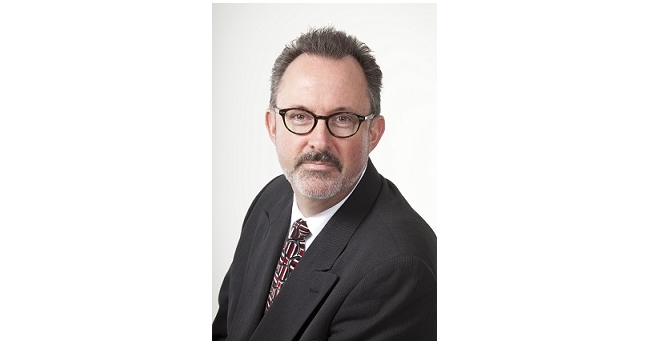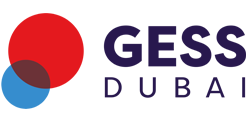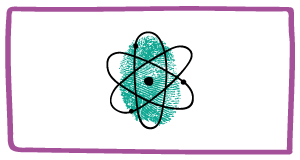In Conversation With.... Brian Lewis, ISTE

This month we were lucky enough to catch up with Brian Lewis who delivered a Keynote speech at GESS 2014. He discusses the non-profit organisation ISTE and their dedication and passion towards helping students embrace technology in learning, his thoughts on how education will progress and change, social media and what he believes to be the most pressing matters in education today.
Tell us about ISTE and the challenges that come with being the CEO.
ISTE is an incredibly passionate, dedicated nonprofit focused on supporting educators as they embrace, and help their students to embrace, technology in learning. We often say “it’s not about the technology, it’s about learning and teaching,” and that’s exactly right. The focus should always be on learning objectives and how technology can best support them.
I joined the ISTE team just shy of two years ago and arrived to find a great organization with tremendous strengths, and, to use a phrase, was charged with “taking it to the next level.” We’ve done a lot of reflection and we know ISTE has three core differentiators: the ISTE Standards, the ISTE conference, and the super-charged ISTE members and community. These things were built over time by countless volunteers and staff, and we have the duty to continue to build these assets into the future, serving evermore educators and students. It’s a huge honor and a huge responsibility.
What excites you most about the work of ISTE?
ISTE has, over many years, positioned itself at the epicenter of all things ed tech. The people who are at the front edge of this amazing work in schools all around the world are the ones who gave life to this incredible, mission-driven organization. They are the ones who continue to lead this movement from the classroom, the school site, the district, the state and the Minister of Education’s office.
ISTE has had, and continues to have, real impact on students’ lives. That’s exciting and motivating. All students everywhere have to learn to navigate in a world that is rapidly changing. As educators, our job is to empower students to succeed in a world we can’t anticipate. This means thinking deeply about every aspect of learning.
We must open the doors to high-quality learning for all students, creating different pathways for success, equipping and empowering students to embrace a constantly evolving future and enabling them to become lifelong learners.
Ultimately, being part of a global education community that’s keenly focused on doing what’s right for students is what excites me most about the work we do at ISTE.
What was the one thing from your talk at GESS that you’d like others to take home and implement?
As technology continues to evolve, its role in education will be at the center of every public policy debate around the world. Education technology is driving conversations about the way teachers teach and the way students learn.
From ISTE’s perspective, there’s no sense in re-creating the wheel. Educators shouldn’t feel alone or disconnected as they chart the course in their own schools for how best to engage technology. That’s why ISTE created the ISTE Standards, so there is a strong foundation from which to do this work around the world. So there are colleagues upon whom others can call for insights and guidance. So we educators in all roles in education could have a place, a center, a launching pad for developing knowledge, programs and systems that support local learning based on how technology supports meaningful, student-centered learning.
There is no dispute among world leaders that education investments are essential to building economic growth, strengthening communities and deepening mutual understanding among cultures and countries.
Are there any new projects in the pipeline for ISTE about which you are particularly excited?
Absolutely. At the GESS conference we joined Dr. Ali Alkarni, director general of the Arab Bureau for Education in the Gulf States (ABEGS), to announce a new program to prepare educator-mentors in the Gulf States.
This initiative, the ABEGS/ISTE Standards Coaching Certificate Program, was launched with a group of 25 educators from six Gulf States (Kingdom of Bahrain, Republic of Yemen, Kuwait, Kingdom of Saudi Arabia, Sultanate of Oman and Qatar). Through both face-to-face workshops and online coursework, this group of educators is building new strategies for integrating and using technology to support learning.
Upon completion of the program, participants will be certified as coaches (mentors) to train other educators on how to implement the ISTE Standards. With this new certificate, they will lead professional learning in their own countries using the ISTE Facilitator’s Guide translated into Arabic.
Through this work, we’ll build a replicable model that other countries can adopt as they evaluate the needs of their educators and develop plans to advance digital-age teaching and learning in their schools. We invite everyone to follow the progress via the ISTE Connects blog.
In your opinion, what are the most pressing matters in education? What are the greatest challenges that educators are being faced with at the moment?
As we all know, the challenges in education vary from one country to another and from one community to another. In some communities, access to connectivity is the biggest challenge, while others struggle with access to the most basic levels of education.
No matter what the issues are in a country or community, the common thread is the increasing need for next-generation professional development so educators are prepared to effectively and confidently use technology in the classroom to drive learning. Again, it’s not about how to use a piece of technology, it’s about understanding how to use that technology to support local learning goals. Our work with ABEGS is directed at this very issue. As we enhance the continued support educators receive, we need to help teachers develop pedagogies that tap into students’ core motivations and deeply engage them in exploring, problem solving, collaborating and creating. This is where the power of technology will be realized.
How do you think education will change or progress in the next decade?
Students today, some call them “digital natives,” almost innately use global connectivity to collaborate, share and co-create in their social lives. As educators become more proficient in using these technologies to support learning, and as access to digital tools and resources increases, the way educators approach teaching and the way students approach learning will evolve. ISTE’s vision of connected learning in a connected world will take hold.
Getting to this tipping point means making big investments in professional learning. New programs, such as the ABEGS/ISTE Standards Coaching Certificate Program, are redefining what a sustainable and scalable professional learning model looks like and how we can empower teachers with new strategies to engage today’s students.
Social media is seen as fundamental to business success and awareness. How does ISTE maximize ROI and brand awareness through social media?
As a membership-based nonprofit organization, we use a number of communication channels to engage and inform our members and the broader ed tech community. Social media plays a critical role in reaching members who turn to Twitter, Facebook or LinkedIn to get information on the latest education technology trends. Members from our professional learning networks gather on Google hangouts to exchange ideas or join weekly Twitter chats to debate a topic.
All of these touchpoints build our brand and reinforce work that supports ISTE’s mission: “To cultivate a passionate professional learning community, link educators and partners, leverage knowledge and expertise, advocate for strategic policies, and continually improve learning and teaching.”







